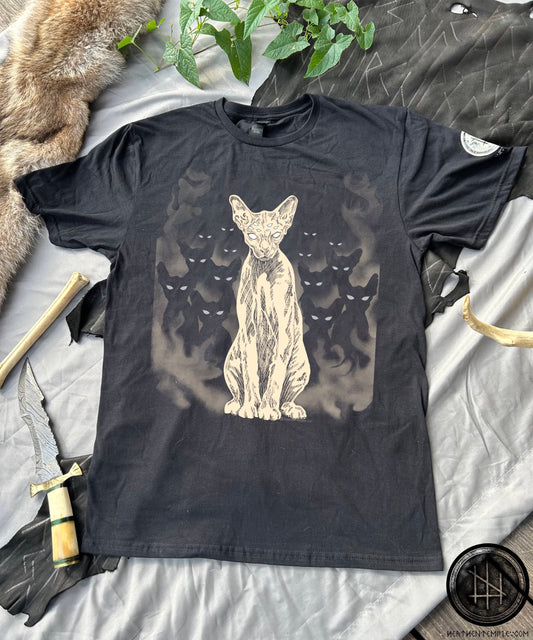Why Was Bastet Feared? The Duality of Egypt’s Cat Goddess
Bastet, the ancient Egyptian goddess often depicted with the head of a lioness or a domesticated cat, is frequently remembered as a protector, a symbol of home, fertility, and motherhood. But beneath her nurturing image lies a fierce, enigmatic side that evoked both reverence and fear. Why was this beloved goddess also feared? Let’s explore the complex duality of Bastet and how her fearsome aspects played a vital role in Egyptian society and spirituality.
The Fierce Protector: Bastet’s Origins as a Warrior Goddess
Bastet’s origins trace back to her role as a lion-headed goddess of war and protector of Ra, the sun god. In early mythology, she was closely associated with Sekhmet, another lioness deity, known for her wrath and destructive power. Bastet initially shared similar attributes, embodying the fierce and untamed aspects of a lioness, a hunter who struck terror into the hearts of enemies.
Her role as a defender was not just metaphorical. Bastet was believed to protect Egypt from external and spiritual threats, including malevolent forces and chaos deities like Apep, the serpent of darkness. Her claws were sharp, her roar terrifying—qualities Egyptians respected and feared.
The Cat’s Dual Nature: Protector and Predator
Cats, the sacred animals of Bastet, embody duality. They are nurturing and protective of their young, yet they are also skilled hunters. Egyptians saw these traits reflected in Bastet, who could be a loving guardian or a ferocious warrior depending on the circumstances.
This duality made Bastet an unpredictable force. She was a protector of the home and family, but if disrespected or angered, she could unleash her wrath. Egyptians revered her not just for her kindness but for the belief that her fury could be directed at enemies and those who disrupted the divine order.
Bastet’s Role in Justice and Punishment
Bastet’s fearsome reputation also stemmed from her role as an enforcer of Ma’at, the concept of truth, balance, and justice in ancient Egypt. As a guardian of the pharaoh and the land, she punished those who violated sacred laws or brought harm to society.
Ancient Egyptians believed Bastet’s wrath could manifest through plagues or misfortune if her divine will was disrespected. Her fearsome aspect served as a reminder to uphold harmony and honor the gods—a necessary balance to her nurturing qualities.
The Wrath of Bastet in Mythology
In some myths, Bastet’s ferocity was depicted in her battles with chaos and disorder. Stories often emphasized her connection to Sekhmet, her lioness counterpart, to highlight her ability to transform from a loving protector to a destructive force.
For example, during Ra’s nightly journey through the underworld, Bastet was believed to guard him, fighting off the serpent Apep. Her role in these battles emphasized her capability to unleash her fearsome power for the greater good, but it also reminded Egyptians that such power was not to be taken lightly.
Fear as a Form of Reverence
To ancient Egyptians, fear of Bastet was not necessarily negative. It was a form of reverence, a recognition of her immense power and divine authority. Worshippers honored her with festivals and offerings, not just to celebrate her nurturing side but to appease her and ensure her protection.
Her festivals, such as the one held in Bubastis, her cult center, often involved music, dance, and offerings. But they were also an acknowledgment of her ability to tip the balance if her anger was provoked. This balance of fear and love was central to how Egyptians viewed their gods—complex, multifaceted beings who commanded both respect and devotion.
Bastet’s Modern Legacy: A Goddess of Complexity
Today, Bastet is often romanticized as a gentle cat goddess, but understanding her feared aspects provides a fuller picture of her significance. She was a goddess of contradictions—nurturing and fearsome, loving and deadly. This complexity made her one of the most fascinating and powerful deities in the Egyptian pantheon.
By honoring Bastet’s dual nature, we can better appreciate the ancient Egyptians’ sophisticated understanding of balance and the divine. Bastet was feared not because she was malevolent, but because she embodied the delicate equilibrium between chaos and order, reminding humanity of the importance of respect, reverence, and responsibility.



